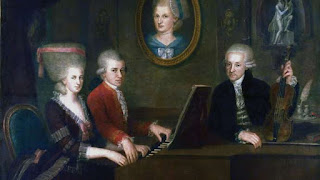You got 7 correct out of 10.
:)
1. A derogatory word for an English person in the Scots language is a ___________.
engleton
anglesphart
dribble
sassenach
"Sassenach" is the only real word in Scots English in the list of answers.
2. Which word is NOT a Scots word for a family member?
Mither
bampot
nana
da
"Bampot" is an insulting term for an idiot or crazy person.
3. "A bonny lassie and a handsome mon had a wee ___________."
bairn
minger
flaggie
jakey
"Bairn" means child in Scots English.
4. Complete the Scots language and accent cliché:
"There’s a moose loose aboot this ___________."
noose
loose
roose
hoose
Translation into standard English is, "There’s a moose loose about this house."
5. "Look at that beautiful __________ over there. It has so many pretty colours."
watergaw
maw
besom
pal
A "watergaw" is an incomplete patch of rainbow.
6. "Today, it’s ____________. There’s a strong wind, and it’s snowing."
chankin’
drookit
sweltering
boiling
"Chankin’"means extremely cold, and "drookit" means extremely wet.
7. Complete this Aberdeen Doric interaction:
Hamish: "Foos yer doos?"
Alistair: "__________."
Och aye me hoose
Och aye me haggis
Och aye peckin'
Och aye me bagpipes
"Och aye peckin" is the response to, "How are you" in the Aberdeen Doric dialect, which translates into Standard English as, “Oh always pecking". It means, "I'm fine."
8. Translate this Scottish phrase into Standard English:
"Yer aff yer heid."
You have your hide.
You’re after your hey.
You’re off your head.
You half a head.
9. What does this sentence mean?
"Haud yer wheesht."
Be quiet.
Go away.
Give me a kiss.
Hold my bagpipes.
"Haud yer wheesht" translates in Standard English to mean, "Hold your mouth."
10. What does this sentence mean?
"Yer bum's oot the windae."
You’ve got no trousers on.
You’re pulling a moony.
You’re telling a joke.
You’re talking nonsense.
"Yer bum's oot the windae" is an idiomatic phrase that translates into Standard English to mean, "Your bum is out the window." It means that you are talking nonsense.
Zur Rezeption von Franz Kafka und Samuel Beckett in Rumänien
Receptarea lui Franz Kafka şi a lui Samuel Beckett în România Abstract Teoria receptării a înregistrat în ultimii ani o dezvoltare impresionantă, astfel încăt s-au putut trasa linii generale de descriere a unei direcţii de receptare în conformitate cu anumite tipologii estetice care marchează receptarea literară la nivel de receptor cult şi instruit. Acestea sunt premisele principale de la care porneşte cercetătorul în căutarea sa de modele şi modalităţi literare de receptare. S-a vorbit astfel de patologii de receptare, de estetica personajului şi nu în ultimul rănd de o receptare critică a operei literare. Sarcina cu care se confruntă cercetătorul în demersul său este de a descoperi în ce măsură opera examinată capătă caracter normativ la nivelul unui grup de receptori care aderă la stilul, forma şi limbajul literar al autorului receptat. Franz Kafka şi Samuel Beckett se integrează în categoria scriitorilor emblematici ai modernităţii şi drept urmare am considerat că un stud...

Comments